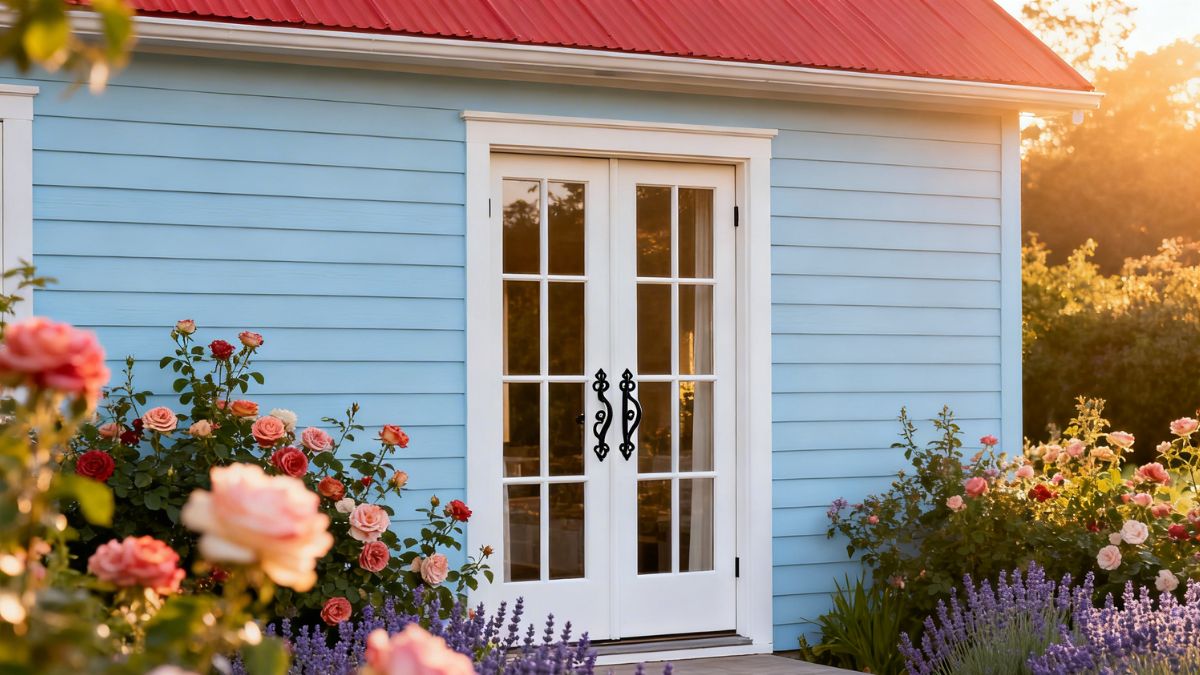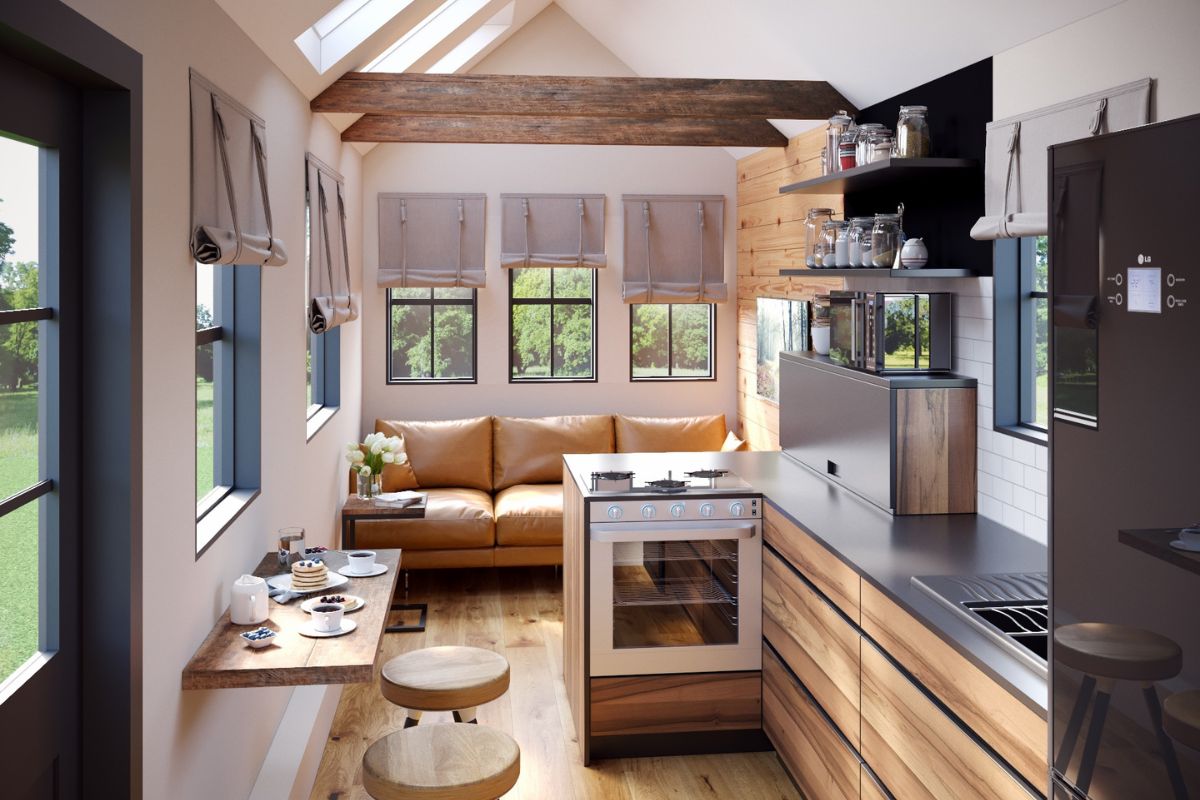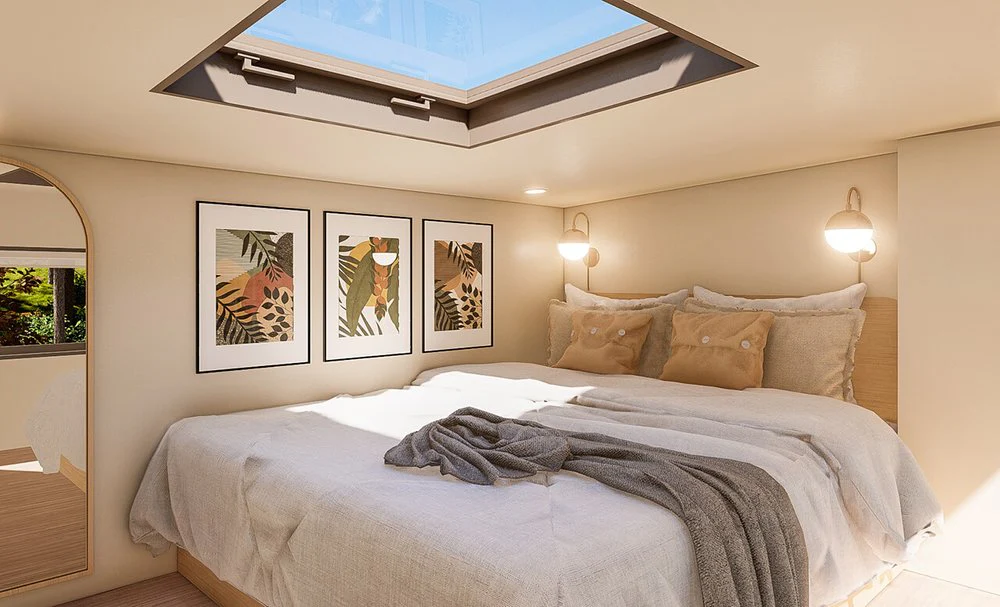Arkansas Tiny House Laws And Regulations

Tiny house living is a lifestyle that embraces minimalism and simplicity. It involves residing in a small, compact dwelling that typically ranges from about 100 to 400 square feet in size. This movement has gained popularity as a response to rising housing costs, environmental concerns, and a desire for a more fulfilling and sustainable way of life.
Living in a tiny house encourages individuals to downsize their possessions, prioritize what truly matters to them, and focus on experiences rather than material possessions. It offers an opportunity to declutter and live with fewer belongings, leading to a more organized and intentional living space.
Are Tiny Homes Legal In Arkansas?
Yes, tiny homes are legal in Arkansas. It's important to note that regulations and requirements can vary depending on the state's location and zoning regulations. Local jurisdictions may have rules and restrictions regarding the placement and construction of tiny homes.
It is recommended to research and consult with local authorities or professionals knowledgeable about the specific regulations in your desired area within Arkansas to get accurate and up-to-date information on the legality of tiny homes.
Arkansas Zoning and Building Codes
Tiny houses in Arkansas are subject to zoning regulations that can differ based on the specific area. It's important to remember that the information provided here is a general overview, and it's recommended to consult with local authorities or legal experts for the most accurate and up-to-date information about your location.
Local Zoning Ordinances
Zoning regulations dictate land use and can include rules related to the size, type, and location of structures, including tiny houses. These regulations can vary from one locality to another within Arkansas. Some areas may have specific zoning classifications for tiny houses, while others may not explicitly address them.
Minimum Square Footage Requirements
Many zoning ordinances in Arkansas specify minimum square footage requirements for dwellings. These requirements can be challenging for tiny houses, which are typically much smaller than average homes. Meeting these requirements may require obtaining a variance or special permit.
Building Codes
Building codes are another important consideration when it comes to tiny houses. While Arkansas has adopted the International Residential Code (IRC) as the statewide building code, individual municipalities and counties may have additional or modified building codes. Compliance with building codes is typically necessary for obtaining permits and ensuring the safety and structural integrity of the dwelling.
RV and Mobile Home Regulations
Some areas in Arkansas may allow tiny houses to be classified as recreational vehicles (RVs) or mobile homes. This classification may have specific regulations and limitations, such as restrictions on where they can be parked or requirements for RV parks or mobile home communities.
Accessory Dwelling Units (ADUs)
Some jurisdictions in Arkansas allow tiny houses to be classified as accessory dwelling units (ADUs) if they meet certain requirements. ADUs are typically secondary dwellings on the same property as a primary residence. Regulations regarding ADUs can vary, so it's important to check local ordinances to determine if this classification is applicable.
Are THOWs Allowed In Arkansas?
Tiny houses on wheels are generally not allowed as permanent residences in Arkansas. Like many other states, Arkansas has specific regulations and building codes that distinguish between permanent structures built on foundations and structures on wheels, such as RVs and mobile homes.
In Arkansas, if you intend to use a tiny house on wheels as a permanent residence, you may encounter challenges due to zoning restrictions and minimum square footage requirements for dwellings. Most zoning ordinances in Arkansas have minimum square footage requirements that are typically larger than a typical tiny house.
However, it's important to note that regulations can vary between different municipalities and counties within Arkansas. Some areas may have more flexible regulations or allow tiny houses on wheels under certain circumstances, such as classifying them as accessory dwelling units (ADUs) or allowing them in designated RV parks or mobile home communities.
To determine the specific regulations and allowances for tiny houses on wheels in a particular area in Arkansas, it's recommended to contact the local zoning or planning department. They will provide the most accurate and up-to-date information regarding the legality and requirements for tiny houses on wheels as permanent residences in that jurisdiction.
Illegal Permanent Residency in THOWs
In Arkansas, like in other states, utilizing a tiny house on wheels as a permanent residence is generally not permitted. This is due to regulations that differentiate between houses built on foundations and those constructed on wheels.
If your property is subject to the land-use code that distinguishes between these two types of dwellings, it is advisable to construct your tiny house on wheels to comply with the regulations. Adhering to these guidelines ensures that your tiny house aligns with the applicable zoning regulations in Arkansas.
Utilities and Off-Grid Living In Arkansas
Water
If you choose to live off-grid in Arkansas, obtaining a water source becomes essential. Options include drilling a well, collecting rainwater, or utilizing natural water sources like creeks or springs. However, it's important to comply with state and local water rights and permit regulations.
Sewage
Access to public sewage systems is necessary for alternative options for waste disposal. These may include installing a septic system, composting toilets, or utilizing other environmentally friendly waste management systems. Regulations and requirements for waste disposal can vary by county, so it's important to consult local authorities for guidance.
Electricity
Generating electricity off-grid typically involves using renewable energy sources such as solar panels, wind turbines, or hydroelectric power. Arkansas has good potential for solar energy generation, and incentives and programs may be available to support renewable energy installations. Battery storage systems can store excess energy when renewable energy sources are not actively generating power.
Heating and Cooling
Off-grid living in Arkansas requires considering heating and cooling needs. Options include using wood-burning stoves, propane or natural gas heaters, and energy-efficient cooling systems. The choice of heating and cooling methods depends on the climate, available resources, and personal preferences.
Insurance and Financing
When it comes to insuring your tiny house in Arkansas, there are a few options to consider. Here are the main insurance choices:
RV Insurance
If your tiny house is classified as an RV, you can look into RV insurance policies. These typically cover liability, collision, and comprehensive damage, similar to insurance for motorhomes or travel trailers.
Mobile Home Insurance
If your tiny house qualifies as a mobile home according to the Arkansas Manufactured Home Commission, you can explore mobile home insurance. This type of insurance protects the dwelling, personal belongings, liability, and additional living expenses in case of damage or loss.
Specialty Tiny House Insurance
Some insurance companies offer policies specifically designed for tiny houses. These policies can be customized to fit the unique needs of tiny homes, providing coverage for the structure, personal property, liability, and additional living expenses.
Builder's Risk Insurance
If you're building your own tiny house or having it built, consider builder's risk insurance. This coverage protects against damage or loss during the construction phase. Once construction is complete, you can switch to a different insurance policy.
To find the right insurance for your tiny house, contact insurance companies directly and discuss your needs. Compare quotes and understand the terms and conditions of each policy. Also, make sure the insurance meets any lender requirements or local regulations.
Conclusion
Understanding and complying with the laws and regulations of Arkansas is crucial when considering a tiny house. It's important to know the legal requirements to ensure a smooth and successful experience. Here are the key reasons why understanding and complying with Arkansas's laws and regulations is vital:
Adhering to the laws and regulations helps ensure your safety and the safety of others. These regulations are put in place to ensure that structures meet certain standards for structural integrity, fire safety, electrical wiring, and plumbing. By following these guidelines, you can minimize the risk of accidents, hazards, or potential harm to yourself and your community.
Compliance with the laws and regulations helps protect your investment. Constructing or purchasing a tiny house is a significant financial undertaking. By understanding and complying with the laws, you can avoid potential legal issues, fines, or penalties that may arise from non-compliance. It also provides peace of mind, knowing your investment is secure and in line with the applicable rules.
Being informed about the laws and regulations allows you to make informed decisions about your tiny house project. It helps you understand the limitations and requirements regarding zoning, land use, size restrictions, building codes, and permits. This knowledge enables you to plan and design your tiny house accordingly, ensuring it aligns with the legal framework and is situated in appropriate locations.
Understanding the laws and regulations allows you to be a responsible community member. By complying with the rules, you contribute to maintaining the integrity of the neighborhoods, preserving property values, and promoting harmonious living among residents. It also demonstrates respect for local authorities and helps foster positive relationships within your community.
To ensure a successful and lawful experience with your tiny house in Arkansas, thoroughly research and understand the applicable laws and regulations. Consult local authorities, building departments, or legal professionals to clarify any uncertainties. Doing so allows you to navigate the process more effectively, enjoy your tiny house without legal complications, and contribute positively to your community.







.jpg)

